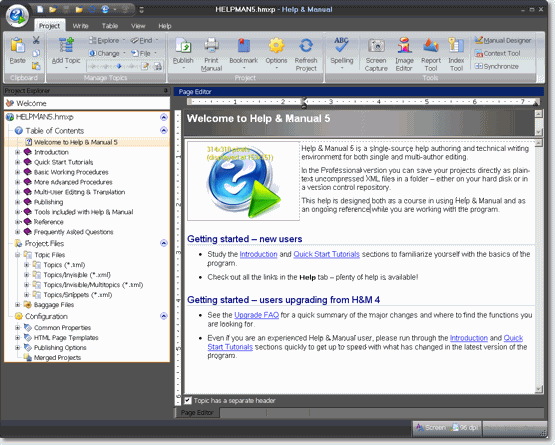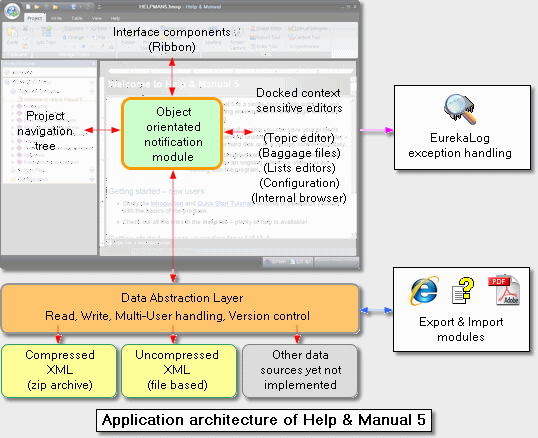|
You Always Touch a Running System!
As a developer, you know the old saying, "Never touch a running system".
But in fact you always do, you have to. And that almost inevitably adds
new bugs to your software and bugs are mean: They always strike on the
customer's computer, never in your own test lab. That's why we use
EurekaLog.
In early 2007 we were confronted with just such a situation: Our
flagship product Help & Manual was ten years old, and although the old
application architecture had served us well for many years, it was time
to redesign the software and bring it up to speed for the new features
we wanted to implement. The changes were major, including migration of
the source to the latest version of Borland Delphi 2007, a completely
new user interface (the DevExpress Ribbon), transition from a single to
a multi-document UI and support for concurrent multi-user editing on the
same XML source files. Full Unicode support was a given, too. The most
serious change, however, was abstraction of the user interface from the
data. Not only to support XML but also to allow us to store our XML data
anywhere we want: in files, zip archives, databases, you name it.
Each of the modifications above on its own was enough to give any
developer sleepless nights. All of them together were the stuff that
nightmares are made of, because the potential for bugs was simply
gigantic. We needed a system that would enable us to find bugs early and
accurately retrieve all the information needed to duplicate them in our
testing environments, even if they occurred under circumstances we had
never imagined or planned for.
My colleague had already used EurekaLog with great success in other
projects of his own. Integration was painless and I particularly
appreciate the extensive customization options. EurekaLog significantly
reduced the Help & Manual 5's time-to-market, just as as Help & Manual
does for its user's documentation and online help.


Alexander Halser
EC Software GmbH
www.ec-software.com
|

